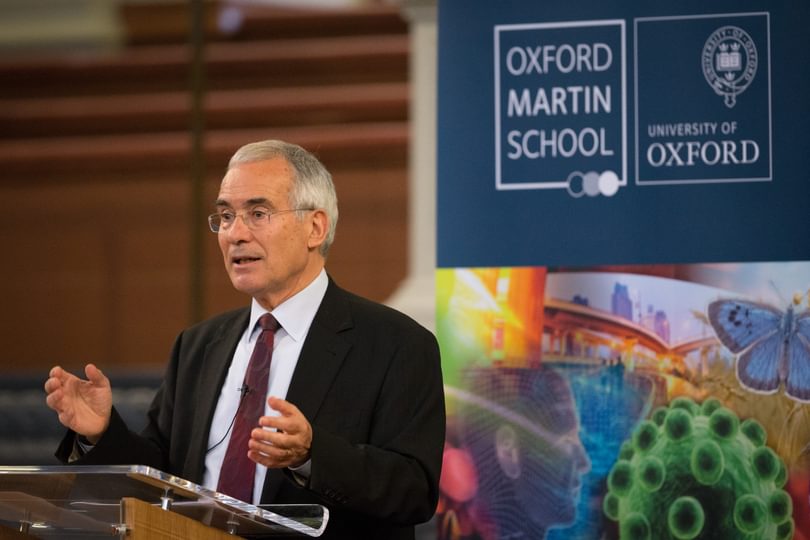
The “exciting and attractive” prospect of a global transition to a low carbon economy was set out by Lord Nicholas Stern in his lecture at the Sheldonian Theatre on 19 October.
At the event, co-hosted by the Oxford Martin School and Oxford’s Environmental Change Institute (ECI), Lord Stern gave an overview of the arguments in his new book, ‘Why are we waiting? The logic, urgency and promise of tackling climate change’.
“What we do in the next 20 or 30 years will determine the sort of world we make for the rest of the century, and beyond,” he told the audience of more than 700 people. “We shouldn’t be waiting; the costs of inaction are far greater than the costs of action.”
Tackling climate change, along with overcoming poverty, was a defining challenge of this century, he said, and called humanity’s failure to address it effectively “the greatest market failure”, saying people were able to “dump greenhouse gases into the air for free”.
Describing the potential effects of exceeding a two degree temperature rise, he said: “Most of the snow will be off the Himalayas, the Andes and the Rockies. Southern Europe might look like the Sahara. Large parts of the world will be under water. The stakes we are playing for are immense, and the time period it will happen in is quite short. It is not some abstract future generation that will be affected, it is our own grandchildren.”
Lord Stern said the requirement to reach net zero carbon emissions in the second half of the 21st century represented a huge change, but that humanity should not shy away from the challenge. Arguing that major gains could come from progress in city planning, technology and clean energy systems, he said the transformation in the global economy over the next two decades would present significant opportunities. But he added: “If we delay and mess around with indecision, then we will surely take it beyond the point where we can hold temperatures to two degrees.”
- Watch the video of Lord Stern's lecture
- View Lord Stern's full 'Why Are We Waiting?' slide presentation